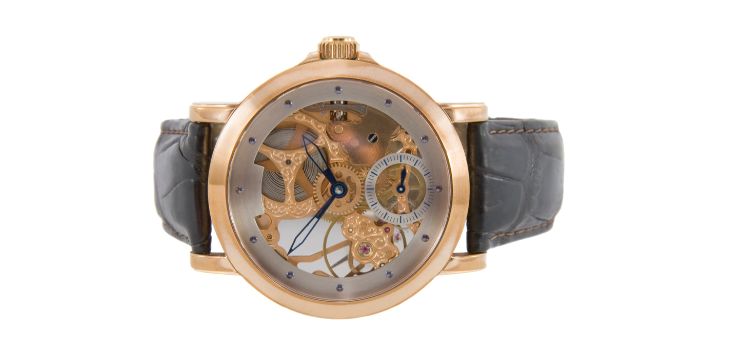As an Amazon Associate, I earn from qualifying purchases.
Mechanical watches have long been prized for their craftsmanship, durability, and timeless appeal. Unlike their quartz counterparts, which rely on batteries and electronics, mechanical watches operate through intricate mechanisms driven by springs and gears. This age-old technology tells time and captivates enthusiasts with its engineering marvels. One of the most common questions among prospective buyers and enthusiasts is: How long does a mechanical watch last?
The Longevity of Mechanical Watches

A well-maintained mechanical watch can last for generations. The key factors influencing its lifespan include the quality of craftsmanship, regular maintenance, and the materials used. Here’s a closer look at each of these factors:
1. Craftsmanship and Quality
The durability of a mechanical watch heavily depends on how it was made. High-quality watches crafted by reputable manufacturers often feature robust materials and meticulous assembly. The dial, casing, and movement are among the parts that are made to resist everyday wear and tear.
2. Regular Maintenance
For a mechanical watch to last longer, proper maintenance is essential. Over time, oils inside the movement can degrade, potentially affecting timekeeping accuracy and causing components to wear down faster. Routine servicing by a skilled watchmaker ensures that the watch remains in optimal condition. Manufacturers typically recommend servicing every 3 to 5 years, although some watches may require more frequent attention depending on their complexity.
3. Materials Used
The materials used in a watch’s construction significantly impact its longevity. High-grade stainless steel, titanium, and precious metals like gold and platinum are commonly used for cases and bracelets due to their durability and resistance to corrosion. Likewise, sapphire crystal, known for its scratch resistance, protects the dial and ensures visibility for years.
Signs of Wear and Tear
Despite their durability, mechanical watches can show signs of wear over time. These may include:
- Scratches: On the case, bracelet, or crystal.
- Fading: Of luminous markers or dials.
- Loosening: Of bracelet links or crowns.
- Decreased Accuracy: Due to the natural aging of internal components.
Frequent inspections can aid in spotting these problems early on, halting more damage and preserving the watch’s functionality.
Ensuring Longevity
To maximize the lifespan of your mechanical watch, consider the following tips:
- Avoid Extreme Conditions: Extreme temperatures, magnetic fields, and water exposure can damage the delicate internal mechanisms of a watch.
- Use as Intended: Mechanical watches are designed for daily wear but avoid unnecessary impacts or rough handling.
- Service Regularly: Follow the manufacturer’s guidelines for servicing intervals and choose a qualified watchmaker for maintenance and repairs.
In Conclusion
While the lifespan of a mechanical watch can vary based on usage and maintenance, a well-crafted timepiece can last for decades or even centuries with proper care. Investing in quality craftsmanship, regular servicing, and conscientious wear can ensure that your mechanical watch remains a cherished companion for generations.
If you’re a novice or an experienced collector, knowing these things will make it easier to appreciate mechanical timepieces’ timeless elegance and practicality. Embrace the tradition, craftsmanship, and timeless elegance of mechanical watches, knowing that your timepiece can be enjoyed for years with care.
For enthusiasts and customers, this article thoroughly summarizes the variables influencing the longevity of mechanical timepieces. Adjustments can be made based on your website’s needs and target audience.
Frequently Asked Questions
How long can a mechanical watch last?
Mechanical timepieces are renowned for their robustness and longevity. A high-quality mechanical watch can last for decades or even generations if given the proper care and regular maintenance. Craftsmanship materials influence the lifespan and how well the watch is maintained.
Do mechanical watches require regular maintenance?
Yes, regular maintenance is essential for mechanical watches. Over time, lubricants inside the movement can degrade, potentially affecting timekeeping accuracy and causing components to wear out. Manufacturers typically recommend servicing every 3 to 5 years to ensure the watch continues to perform at its best.
What are the signs that a mechanical watch needs servicing?
Several signs indicate a mechanical watch may need servicing:
- Decreased Accuracy: If the watch consistently loses or gains time.
- Increased Resistance: Difficulty winding or setting the watch.
- Visible Damage: Scratches, dents, or other physical signs of wear.
- Loose Parts: Bracelet links or crowns that feel loose or wobbly.
Regular inspections by a professional watchmaker can detect these issues early and prevent further damage.
Can I wear my mechanical watch every day?
Yes, mechanical watches are designed to be worn daily. Regular wear can help keep the internal mechanisms lubricated and functioning properly. However, avoiding extreme conditions such as excessive heat, cold, moisture, or magnetic fields is essential, as these can damage the watch.
How should I store my mechanical watch when not wearing it?
When not in use, Your mechanical watch should be stored somewhere dry and cold, away from direct sunlight. Avoid storing it in areas with high humidity or extreme temperature fluctuations, as this can affect the watch’s performance and longevity. A watch box or case with a soft lining can protect against scratches and dust.
Amazon and the Amazon logo are trademarks of Amazon.com, Inc, or its affiliates.